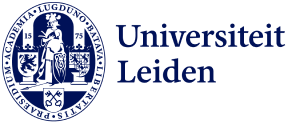Over deze minor
This multidisciplinary minor provides students with knowledge on how and why humans became the way they are. The minor focuses on the evolution of the species Homo sapiens from other hominin lineages and animal ancestors, and on the various factors shaping this process. Not only is human evolution of great intrinsic interest; it also has important implications for understanding our culture, behaviour and disease. The minor is taught by a range of experts from Biology, Archeology, LUMC, Social Sciences and Humanities. A prominent first goal of this minor is to let students experience and practice interdisciplinary collaboration.
The minor starts with the biological principles of evolution, life histories, and phylogenetics. Attention will be paid to the comparative anatomy and physiology of the human digestive tract, immune system and brain. The program then continues with paleontological methods, and the reconstruction of the age, distribution and anatomy of human species. Archeological evidence on diet, use of fire, disease, and group composition will be studied. Hereafter, the minor focuses on the consequences of our evolutionary history for our health, and will provide evolutionary explanations for ageing, metabolic disease, cancer, autoimmune disease and mental disorders. The program ends with an exploration of the diversity in behaviour of modern humans, and the evolution of a range of human traits such as foraging strategies, mate preferences, culture, language, and music.
A prominent second learning objective is scientific writing and critical evaluation of scientific literature. Therefore, students will work in small interdisciplinary groups on an integrative essay in the first half of the minor, and will review of topic on own choice at the end of the minor. During the minor, students will become familiar with a variety of approaches and theories in the field by a combination of lectures, primary literature, many practicals and some museum visits. There are ample opportunities for debate, oral presentations, poster
Goed om te weten
Admission criteria apply to this Minor (see Appendix 3 of the Education and Exam regulation BSc Programmes (OER)). The minor is accessible to all students, but the emphasis on biological and medical topics requires a quick understanding of molecular genetics, physiology and epidemiology. An online test is available to give interested students an idea of the level of the courses. The aim is an equal mix of biology, archaeology and medicine students. All other students may be interviewed to evaluate their motivation.
Link naar meer informatie
- Link naar meer informatieMinorpagina op de website van Leiden University
- StudiepuntenECTS 30
- Selectie minorNee
